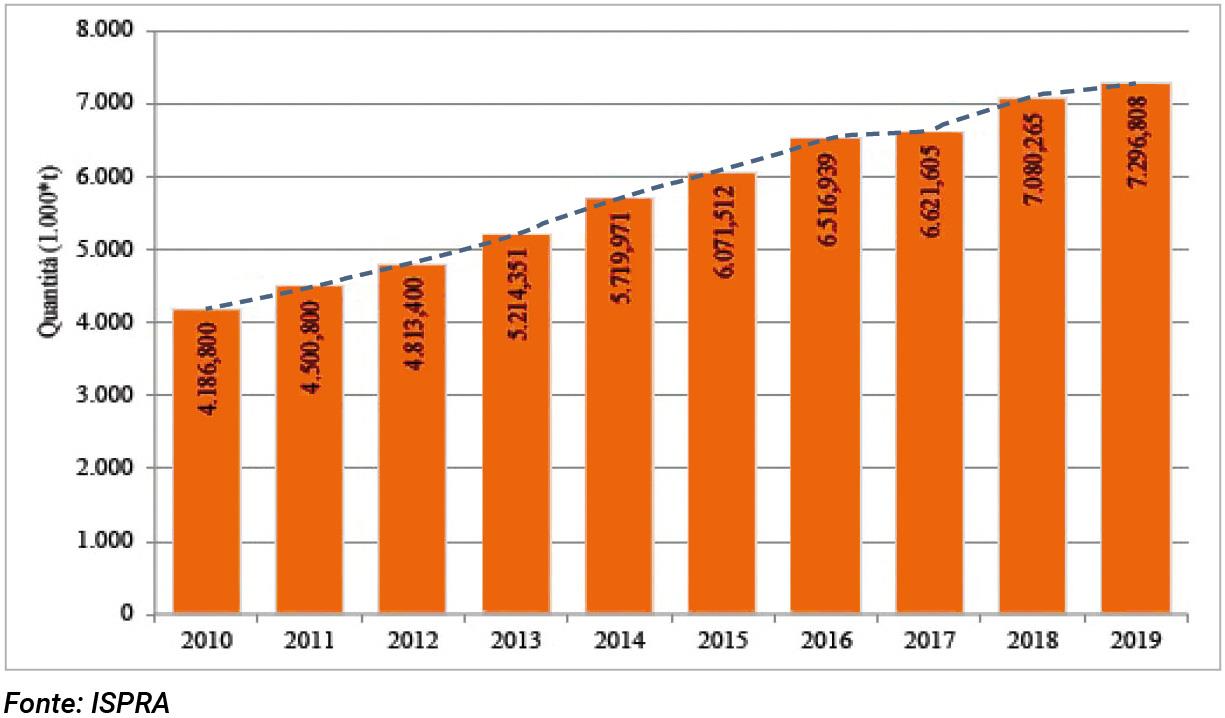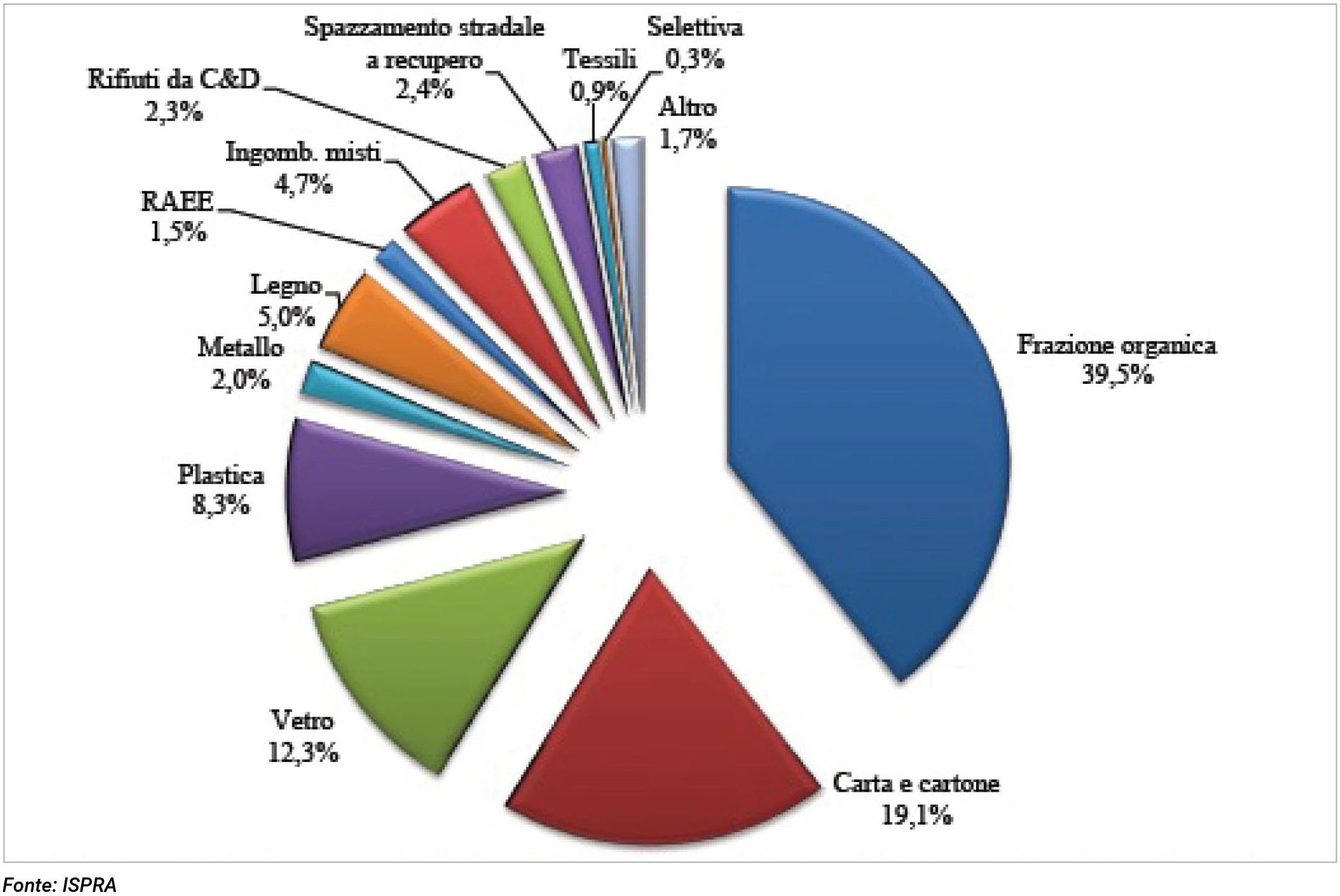Biodegradable and compostable plastic packaging waste certified to standard EN 13432 (carrier bags, fruit and vegetable bags, food bags and pouches, films, tableware (packaging), trays, beverage capsules, etc.) must be disposed of through the separate collection of organic food waste.
Similar biodegradable and compostable products other than packaging items are also disposed of together with separate organic waste such as bags for organic food waste, tableware, cutlery, scoops and coffee capsules.
Italy has a strong record in separate collection and recycling of food waste. According to the latest ISPRA Municipal Waste Report (2020), in 2019 separate collection of the food waste in Italy reached 4.6 million tonnes, compared with 3.5 million tonnes of paper and 1.5 million tonnes of plastic.
Organic waste is therefore the most important stream of separately collected household waste at present, accounting for about 40% of all separately collected waste in Italy. According to estimates from the CIC (Italian Composting and Biogas Association), in 2018 more than 2 million tonnes of compost was produced thanks to the separate collection of organic waste.
This helped to store 375,000 tonnes/year of organic carbon in the soil and to save the emission of 4.3 million tonnes of CO2 equivalent/year, compared with disposal in landfill, and allowed the production of 312 million Nm3 of biogas, corresponding to energy production of 664,000 GWh/year and 100 million Nm3 of biomethane.
 Trend for separate collection of organic waste in Italy (2010-2019)
Trend for separate collection of organic waste in Italy (2010-2019)
 Percentage distribution of separate collection (2019)
Percentage distribution of separate collection (2019)Certified bioplastic packaging makes a fundamental contribution to this system on several levels:
- as carrier bags and fruit and veg bags: enable the transport of goods and should be reused to optimise the efficient and hygienic collection of food waste, thus helping to maximise separate collection quantities. A single package that can therefore perform two functions while improving the overall environmental balance;
- as food packaging (flexible packaging, food film, nets, trays, tableware, glasses, beverage capsules, etc.): limiting the amount of unsorted waste produced because it can be recycled together with food waste (without having to separate contents and container) instead of being sent for incineration or, worse, to landfill;
- as an economic sector: creates development and employment for the whole country. According to data from Plastic Consult, in 2019 the sector comprised 275 companies with 2,650 employees and a turnover of €745 million. Over the past seven years, turnover has increased by an average of more than 10% per year and the number of employees has doubled.